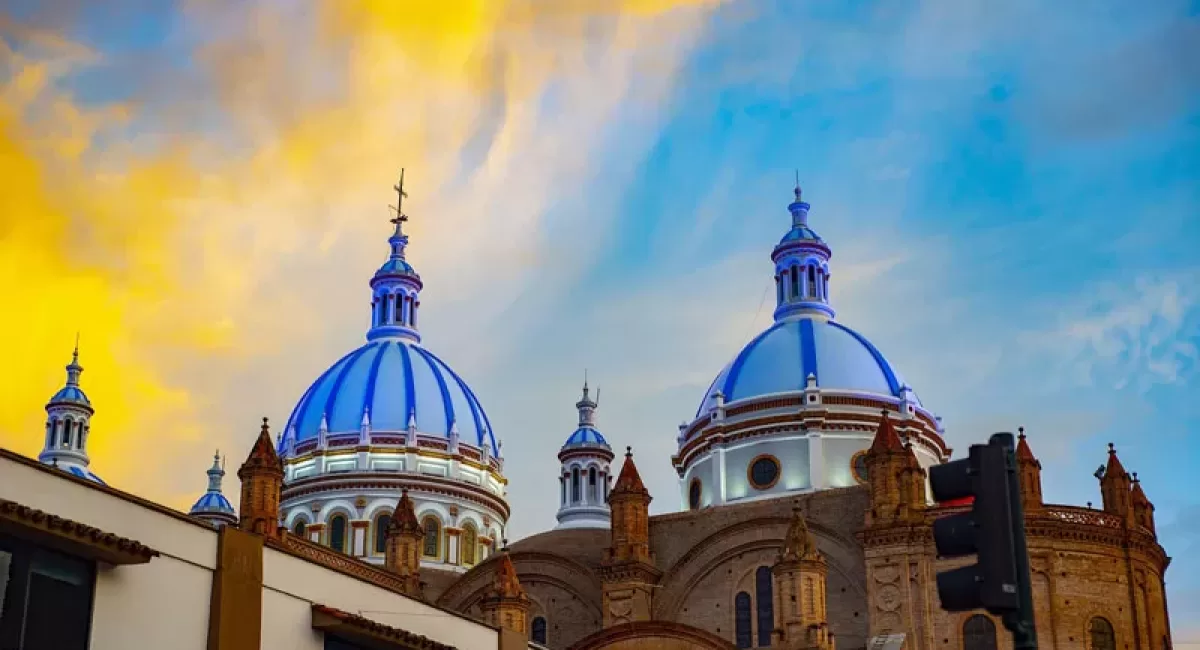Is Ecuador safe to visit after unrest?
Globe Aware volunteers considering Ecuador for a volunteer vacation will be relieved to learn that the country is safe for travelers. Find out the latest update on the situation in this South American destination and what to expect.
Is Ecuador safe to visit after unrest? On this tour, a traveler finds serenity
By Jeri Clausing
Feb 05, 2024
Travel Weekly
QUITO, Ecuador — Not long after I posted my first picture from Quito on Facebook, the comment I was expecting came in: “Isn’t Ecuador blowing up right now?”
Hardly, I thought, slightly amused as I sat in my room in the historical Casa Gangotena hotel here, listening to children gleefully chasing pigeons and puppies in the plaza outside my open window.
No, the recent eruption of cartel-related violence in the country’s port city of Guayaquil isn’t funny. But traveling last week in Ecuador’s interior revealed a situation markedly different from the sensational headlines about the state of emergency that was declared after a cartel leader escaped from prison and his supporters seized temporary control of a Guayaquil television station three weeks ago.
While much of the country, which is unaccustomed to such brazen and public gang violence, went into a self-imposed lockdown and a few cruises were canceled or altered in the initial days after the attacks, life outside of Guayaquil last week felt just as safe and friendly as when I was here two years ago.
Quito’s Old Town had the same serene vibe, with mestizo women lining the sidewalks to sell fresh fruits and vegetables; residents crowding in to get herbs and cleansing treatments from their favorite curanderas; and tourists and residents enjoying a sunny day in the park in front of the presidential palace.
To the south, in the city of Cuenca, Sunday crowds filled churches, outdoor markets and rooftop cafes. And come Monday morning, the streets were bustling with business as usual.
Noticeably missing: the military. While the president declared a state of emergency so he could call up soldiers to battle the gangs, there was little military presence outside of Guayaquil. And it was certainly nothing like the regular patrols one sees on Mexico’s beaches and across that cartel-plagued country’s resort towns.
In fact, during a week here in January hosted by Metropolitan Touring, traveling between Quito, the private rainforest reserve of Mashpi and Cuenca, I saw only two small groups of soldiers walking in Quito. And there was no visible military presence at either the Quito or Cuenca airports.
Local police and private security officers wore flak jackets, but they were nonetheless friendly and seemingly at ease. In the plaza of Old Town Quito, two officers approached to offer me a map. In Cuenca, a security guard at the university smiled and pointed out the dog sleeping in his guard shack as I was snapping photos of two other nearby street pups.
The country’s tourism minister, Niels Olsen, said in a statement that security in urban areas and across the country’s transportation infrastructure has been “effectively reinforced” and that “tourist areas, including the Galapagos Islands, have maintained their usual tranquility, with all tourism services operating normally.”
Nick Philipps Jones, a Mexico-based security consultant whose firm, Sargasso Group, specializes in the region, said that currently, the highland provinces, which Cuenca and Quito are part of, are “relatively calm and safer,” while the coastal provinces and areas along Ecuador’s borders with Colombia and Peru are considered high-risk.
Indeed, in Cuenca, my guides said that while most residents were leery of going out immediately after the television station attack, their worries passed quickly. The biggest concern now seems to be whether a current overnight curfew will remain in effect and what impact it will have on the annual Carnival and its traditional all-night parties next month.
Still, travel companies are beefing up security and taking safety and customer concerns seriously.
Metropolitan Touring, one of the region’s largest tour operators, said it is working with travel agents and customers to rebook wary travelers away from Guayaquil and through Quito if they desire.
And the company immediately hired a security consultant to help it update its protocols and review the security practices of its suppliers, according to company spokesman Dominic Hamilton. For instance, he said, the company’s drivers now all have tracking software. They are also altering their routes.
Hamilton said the company canceled a few city tours in Guayaquil and the Andes for a few days, “just to get the lay of the land.” But airports and hotels have all stayed open, and “everything went back very, very quickly,” he said.
He also emphasized that no travelers have been hurt, and crime involving tourists in Ecuador is “very rare.”
The challenge now, he said, is one of perception. “How dangerous is it for an international traveler to come? … Unfortunately, the headlines, the vivid images of these young guys in the television studio, painted a much more violent and scary scene than is the reality on the ground.”


0 Comments